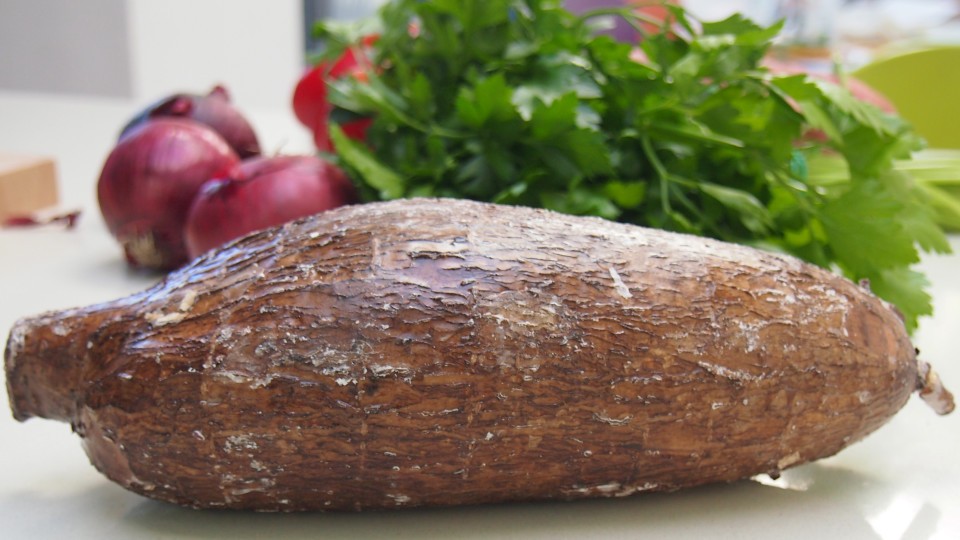Nigeria is the world’s largest producer of cassava (Manihot esculenta). Known as ege (Yoruba), akpu (Igbo), rogo (Hausa), it is a cheap source of carbohydrates, but low in other nutrients and as such it tends to be eaten with protein and vitamin-rich foods.
Many varieties (so-called ‘bitter cassava’) contain cyanide and must therefore be properly prepared before consumption. The most popular form of processing in Nigeria is fermentation which produces garri, a fine grain similar to polenta. Other varieties (‘sweet’) are prepared by peeling and boiling.
Some researchers suggest that the high consumption of cassava and yam (including the peel) explains why the Yorubas have the highest incidence of twins in the world (41 per 1,000 births in contrast to between 10 and 11 amongst Caucasians in the US and UK, and 20-30 amongst other Nigerian ethnic groups).
So frequent are multiple births, that they have specific names for the first set of twins, children who follow twins, and subsequent sets of twins. The first set of Yoruba twins born to a family, male or female, are named Taiwo (“he who has first taste of the world”) and Kehinde (“he who lags behind”). Interestingly, Kehinde despite being born last is seen as the elder of the twins because it is believed that he or she forces Taiwo out of the womb first to make sure the world is safe.
